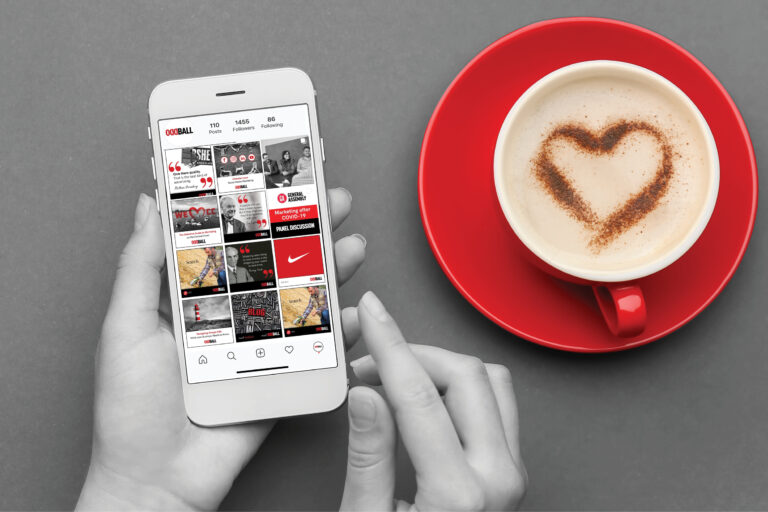Coronavirus (COVID-19) is one of the most difficult challenges most businesses will ever face. Its impacts will last for months, perhaps years to come. And as social distancing and remote working become our new norm, we are seeing a significant shift in consumer buying patterns.
Within an extremely short space of time, we are now seeing more:
- Panic buying of essential items
- The rise of the home-cooked meals as the hospitality industry shuts down
- The fall of tourism spend due to international and domestic travel restrictions
- Decrease in luxury spending as consumers safeguard their finances
- Increased shopping online, particularly through mobile devices
These changes in consumer behaviour are a direct result of new social distancing rules, asking people to:
- stay at home and only go out if absolutely essential
- keep 1.5 metres away from others
- avoid physical greetings such as handshaking, hugs and kisses
- use contactless payments instead of cash
- travel at quiet times and avoid crowds
- avoid public gatherings
- consider cancelling non-essential meetings
- avoid all non-essential travel
So, as a business how should you adjust your existing pre-pandemic marketing strategy during COVID-19 and the turbulent, socially-isolated period ahead?
Before Entering Crisis Mode
To survive any crisis, including associated economic slowdown or negative sentiment, you will find that innovation, agility and empathy are the essential tools you need in your arsenal. As consumer lifestyles continue to adapt daily, you must also adapt your business to proactively reach out to where they are (most will no longer naturally come to you).
To change the course of your marketing strategy, there are five ways to adapt your existing marketing strategy to cope with the new social distancing regulations…
1. Foresee changes in consumer needs
As more stringent measures keep people physically apart to slow the spread of Coronavirus, mental health experts are warning that the loss of everyday social connections comes at a psychological cost. With stress, boredom, anxiety and a sense of loneliness combined with the impact of social distancing, it is now crucial for businesses to anticipate customer needs and address them before they become problematic. There are online resources available on the government’s Head to Health platform that you can springboard ideas from that apply to your own business.
For example, with many children now staying home from school and all sports put on hold, it has become difficult for parents to keep their children entertained and socially engaged. A local Central Coast dance school, JB Dance, is now offering live, online dance classes delivered via Zoom to entertain, teach and keep children connected while face to face dance classes are restricted.
2. Leverage technology
There are some positives to working from home in isolation. You get to play around with the latest tech platforms and online video tools in your pyjamas. To maintain some version of normalcy amid the Coronavirus pandemic, staff and businesses across the world are quickly switching to digital tools that innovate the way they deliver products and provide a service. Not only is this a great example of human innovation, but it’s an excellent time for the latest video and technology platforms to be put to the test.
Anticipating restrictions on hospitality, we assisted Sydney-based Indian restaurateurs, the Kesar Group, to pivot online, developing three new websites with online ordering functionality, contactless payment and contactless delivery.
We’ve collected a list of the digital platforms, technology, and tools we rate highly at present. We encourage you to innovate by simply introducing even a few of them to your daily remote working routine.
3. Hold a strong digital presence
It is without dispute that increased social distancing will have significant impacts on how we consume media online, with Neilson research predicting that media consumption could rise by up to 60%.
Consumers are spending:
- more time on streaming platforms for entertainment
- more time on e-commerce websites for shopping
- more time on social media platforms in order to remain connected to the outside world.
As COVID-19 disrupts regular business and marketing activities, businesses need to be fluid and adjust their focus to communicate with customers where they are right now.
As a result of shifting attention and media consumption patterns, we are seeing a decrease in Google search ad impressions. As Google Search is a platform primarily utilised to speak to customers who are in the consideration or decision making stage of the customer buying journey, businesses may need to look further up the funnel to adjust their strategy accordingly.
In the last month, we have worked directly with several Central Coast businesses to quickly develop downloadable content focused on educating their consumers and grabbing their attention through social media (rather than Google).
4. Focus on customer experience
In times of uncertainty (sick of hearing that word yet?!), instilling confidence in customers is invaluable. To achieve this, provide them with the means to cope with the current situation. Provide additional value. Go beyond what is expected to help. These should all be central pillars to your marketing approach. Showing empathy and prioritising a good customer experience will help elevate your brand during a crisis and build a loyal tribe of advocates.
The closure of gyms across Australia has taken a massive toll on the fitness industry. The face to face exchange of knowledge and access to equipment is no longer possible. This means gym owners have had to recalibrate their customer experience, responding to the changing needs of their members.
In reaction, we’re seeing the rise of group classes delivered in ‘virtual gyms’. We’re also seeing one-on-one online nutrition consultations for people concerned about the temptations of working so close to their kitchen. Free video workout demonstrations are also available for those who want guidance minus the restrictions of online classes.
5. Build a purpose-led brand
Quarantine and lockdown measures are designed to keep people physically safe and reasonably healthy. However, the disruption to the way we live and work may also leave many people mentally stressed, anxious, confused or even frightened.
The challenge for marketers today is to find ways to build relationships with their customers beyond what they sell. Focus primarily on helping –not selling. Determine how you can shift your focus from the products or service you offer to how you can support customers during this period of many unknowns.
At Oddball Marketing, we understand everything is a little crazy right now. But you don’t have to feel like your fumbling in the dark for overnight answers – there is help available.
Although none of our team have lived through a pandemic, we do have decades of experience teaming up with businesses to get them through tough times. We’ve been hard at work since the COVID-19 curve accelerated, feverishly developing valuable resources and practical advice to share with you. This advice is available below, and will help you learn how a business can adapt to stay healthy during this global crisis.
How have you tweaked your marketing strategy to fight COVID-19? Tell us how on LinkedIn, or Facebook as we’re keen to see how businesses are adapting in their own unique ways.
More Online Resources to Help your Business Fight COVID-19:
Why Google Ads still Works Wonders during a CrisisDuring a crisis, your natural instinct is to view paid Google Ads as an unnecessary expense, but here’s proven reasons why AdWords is now a significant marketing opportunity, even during a global pandemic.
Inspiration From Central Coast Businesses Dealing With COVID-19
Despite the limiting reality of COVID-19, we’re hugely motivated by the fighting spirit of Central Coast businesses already trying these simple yet effective marketing ideas.
JobKeeper Program: 3 Important Considerations For Businesses
Australia’s JobKeeper program guarantees some security for small to medium businesses, but have you considered these 3 important aspects for the next 6 months?
Has COVID-19 Changed The Customer Journey Forever?
There is no ‘business as usual’ with the customer journey profoundly changing due to COVID-19. Keep up by moving from old activities to these new opportunities.
7 Ways Marketing Can Help Your Business Survive COVID-19
Practical advice and ideas on how to adapt your business and continue advertising products and services to stay healthy during a global crisis.
Adapting To COVID-19: Video & Tech Tools For Business
Innovate your business overnight by introducing our top recommended digital tools and video technology to your business and daily remote routine.






